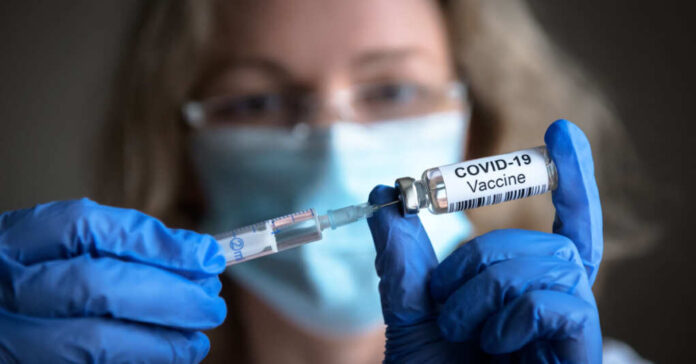
Dr. Joseph Ladapo, Surgeon General of Florida, recently expressed his concerns regarding the updated COVID-19 vaccine in an interview with Fox News Digital. He characterized the generalized jab recommendation by the CDC as a “terrible idea” and highlighted the absence of evidence to support the safety of the updated vaccines. He calls the push for the public to receive these untested vaccines “a major safety concern” and says, “They’re pushing the product on human beings. That is an anti-human approach … an anti-human policy.”
Ladapo observes the absence of clinical trials, even though both the FDA and CDC had the option to require Pfizer or Moderna to conduct such trials and deliberately chose not to do so.
Ladapo points to health risks, such as myocarditis, associated with the vaccines. In 2022, a UCLA and University of Maryland study revealed that there is a 16% risk of serious health complications in mRNA-vaccinated individuals.
There are other lesser-known complications with the vaccines, including “negative effectiveness.” According to global studies, there is a trend of declining vaccine effectiveness after several booster shots. Ladapo suggested that while other scientific factors might be at play, there seems to be a noticeable impact on immunity, potentially increasing the risk of infection among those who have received multiple COVID-19 vaccine doses.
In addition, according to Ladapo, multiple studies indicate that spike proteins, which carry the virus into healthy cells, can be detected in the body up to six months after vaccination. This observation contradicts earlier claims by the CDC that spike protein presence is short-lived, raising questions about the long-term health effects of the vaccine.
Research shows that COVID-vaccine-weary Americans are increasingly reluctant to play the “jab roulette” game.
Per a Pew Research poll conducted in the spring of this year, a significant portion of U.S. adults remain without a booster shot, reflecting the waning public enthusiasm for COVID-19 vaccines. Concerns persist about the long-term safety of these vaccines, with many believing that there is uncertainty regarding potential serious health risks. Some individuals express reservations based on a belief that the vaccines offer little personal benefit or do not prevent infection. Overall, 45% of Americans view the preventative health benefits of COVID-19 vaccines as high, while 25% consider them to be medium, and 29% rate them as low.
In terms of assessing the risk of side effects, most Americans, 58%, regard the risk as either high (33%) or medium (25%), while a smaller proportion, 41%, sees the risk as low.
Unsurprisingly, political affiliations strongly influence views on the handling of the COVID-19 outbreak and perceptions of COVID-19 vaccines. Democrats are more likely to believe that the benefits of vaccines outweigh the risks (84%), see high preventive health benefits (67%), and perceive the risk of side effects as low. In contrast, Republicans hold fewer positive views on these aspects, with only 40% believing the benefits outweigh the risks, 23% seeing high preventive benefits, and 74% rating the risk of side effects as at least medium.
The only consistency in the COVID vaccine debate is the ability of pharmaceutical companies to rake in unprecedented profits for making and distributing them. Pfizer pocketed $35 billion in net profits on COVID-19 products, Moderna made $20 billion, and Sinovac saw $15 billion in profits during the pandemic.
In addition, governments allocated substantial funding for vaccine research and development. Seven vaccine producers received over $5.8 billion in public funds, with $5 billion coming from the United States. These funding agreements did not stipulate that companies would need to reimburse the funds, even when they generated significant profits.
Additionally, vaccine producers further benefited from Advanced Purchase Agreements (APAs), receiving at least $86.5 billion through these agreements, which offered upfront financing for vaccine development and production. These agreements did not require companies to return the funding, even in cases where vaccine development failed and the vaccine was never delivered.
Pfizer/BioNTech and Moderna, despite receiving substantial public funding and earning significant profits initially, raised the prices of their vaccines by 56% and 73%, respectively, between 2020 and 2022. Anticipating reduced vaccine sales in the future, both companies plan to quadruple their latest known prices this year. During an advisory panel meeting of the U.S. Centers for Disease Control and Prevention, Pfizer/BioNTech priced this year’s vaccines at $120 per dose and Moderna at $129 per dose.
Ladapo’s concerns emphasize the overarching emphasis on profits over safety, shared by politicians and pharmaceutical companies. The underlying motive has always been financial gain for investors. The updated vaccines present an opportunity to further bolster their wealth, and any potential interruptions, such as safety testing, are of little concern to those seeking to maximize their financial returns.














